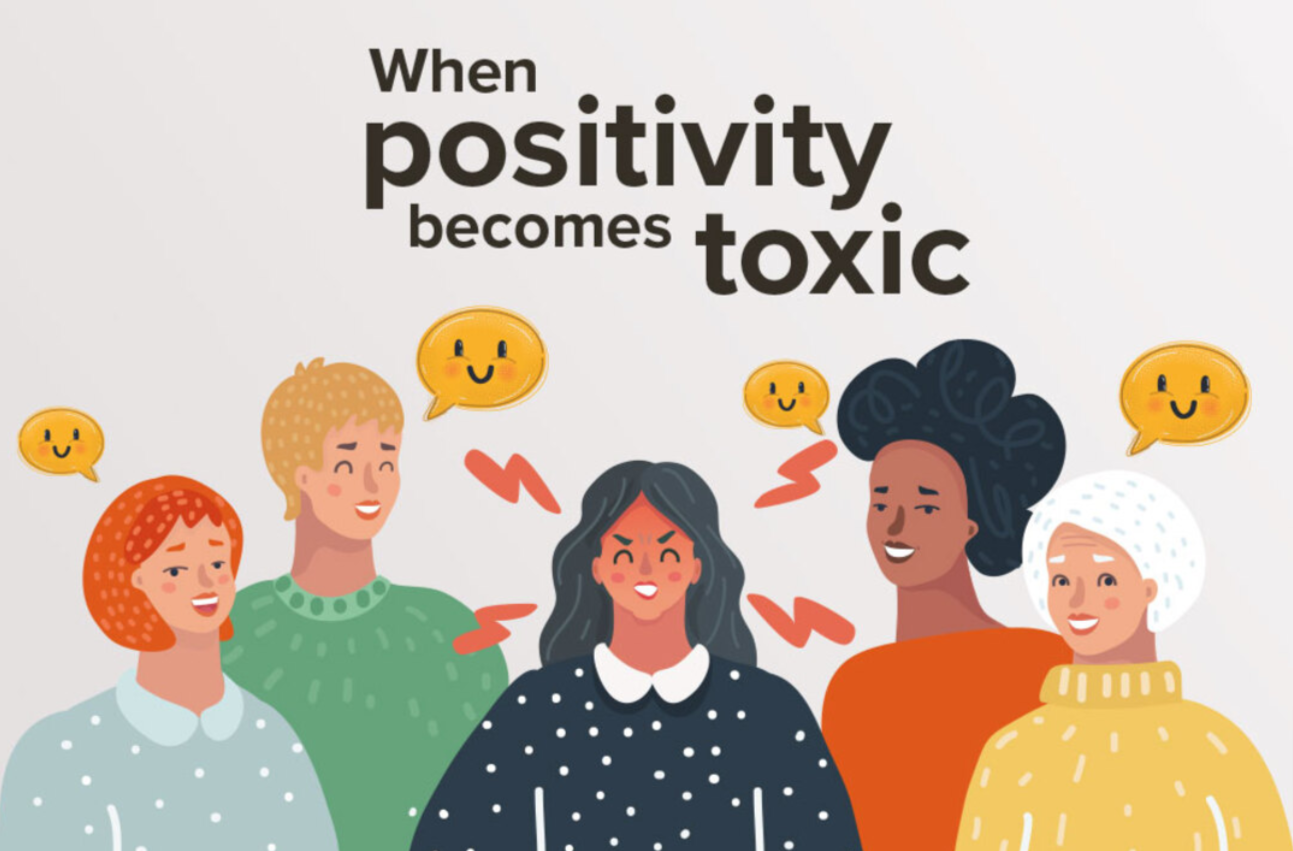Psychological Impact of Toxic Positivity on Mental Health

With its focus on nurturing an upbeat and feel-good attitude, toxic positivity devaluates the legitimacy of negative feelings-a critical requisite for the nurturing of emotional well-being-and ends up promoting pain that hurts mental health and encourages even more negativity over time.
One of the important aspects that call for acknowledgement is authenticity during a time of adversities and crisis. The therapists provide a million resources and online platforms that allow people to process emotions in a safe space of acceptance and support.
Mindfulness and Acceptance of Emotions
Not intentionally aiming for toxic positivity, be it good or bad, it should be identified so as to avoid using it oneself or helping others out of it whenever trudging through painful times. Example: Rather than say "Just stay positive!" to the grieving person faced with sadness and disappointment from loss, perhaps encourage the caretaker of a grieving person to share feelings. Dismissal may lead to isolation or prompt unwanted stoicism, thus guilt for such negative feelings.
Case in point with disregard of the other person: barriers would spring forward in communication and misunderstandings and isolated feelings will arise on the wider scale. It could also mean that suppressing or burying those emotions would make them even harder to deal with as time goes on, and it would overall just detain one's mental well-being.
Validating one's own or others' emotions is worth its weight in gold. The empathizing voice simply gives vent to another's negativity or momentary weakness saying, "I can only imagine how hard this must be for you," or "You must feel very disappointed." That reinforces the idea that everyone's experiences are unique and precious, if only fleeting entities in living a human life in this world. Emotions are just fleeting encounters we have and lose during the course of being alive; they don't stay!
Cultivating Self-Compassion
Therapists caution that the education of sickly sweet, inappropriately positive and self-deprecating ways, can destroy friendship and block the person from asking for help when they need it. The positive rays of self-compassion are also major culprits in the isolation of persons having real emotional issues. It just drains their energy to go within and outward for growth.
Telling someone who just lost their job, "Stay positive, find the silver lining, everything happens for a reason"-these are the very statements that impede the healing conversation and healing of their feelings.
Self-compassion can assist a lot in dealing with strong emotions, especially those induced with toxic hope. An ever-increasing number of researchers link self-compassion to resilience-helping individuals come through their difficulties by honoring and affirming negative feelings instead of suppressing them.
A recent study by Finlay-Jones et al.39 has demonstrated that a strong reduction of depressive symptoms was observed in a sample of psychology trainees (with a randomized design) who took part in an interactive self-compassion program, when compared with participants in a random waitlisted control group.
Emotional Awareness and Vulnerability
At times, people refrain from practicing vulnerability for fear it would be turned against them or they would be taken advantage of. These fears have often been carried into adulthood by some events, social/cultural conditioning, or just the simple desire to avoid pain.
"Good vibes only" truly compounds the issue in times of emotional and physical stress, facing an illness or loss, when the very souls that so desperately need an ear feel unheard, dismissed, and guilt-ridden for requesting the assistance they deserve, thereby forcing down feelings that do nothing for them but foster a lifetime of ailing mental health.
There in your friend's hour of trouble, be a supportive listener without making an active attempt to fix or give advice. You can ask questions to understand their experience and find out whether there is anything you can do to help if you are lost for words. Do remember to also allow for the expression of all negative emotions. This feeling of vulnerability becomes one of the cornerstones in developing healthy relationships and individual growth.
Help-Get It
An optimistic and resilient disposition is something worth pursuing; however, it is an outright hindrance for a mind that is on the constant run to maintaining some cranky sense of positivity. It becomes the thing that affirmatively pushes the denial of negative feelings such as grief, thus dismissing the necessity of silence for telling those folks to be quiet about their own feelings-this positivity just holds the absolute un-nurturing dismissal of ever intrigued."
In rare cases, it would be very proper to be honest but gentle about a bit of toxic positivity. Just tell him or her that feeling real feelings without judgment is really important, as is learning how to deal with the tough ones, such as sadness, anxiety, or fear. "Just not that important" really sounds like "Come on, snap out of it."
Then, if you struggle to cope with difficult emotions, seeking some professional mental health support may just be the ticket. A therapist provides a safe space to express feelings and start developing strategies for coping to build emotional health. Contacting a mental health consultant in your area, either in person or virtually would kick-start your journey toward emotional wellness.
Remodel Your Thinking
If dipping into toxic positivity is a frequent occurrence, awareness of 'when' and 'how' would become crucial to changing one's thought processes. Reframing means turning some aspects around for the better; for example: a bad experience seen as a chance to learn a skill or develop emotional strength.
The very leaders who might benefit from listening instead criticize those who express sadness, anger, frustration, or overwhelm.


